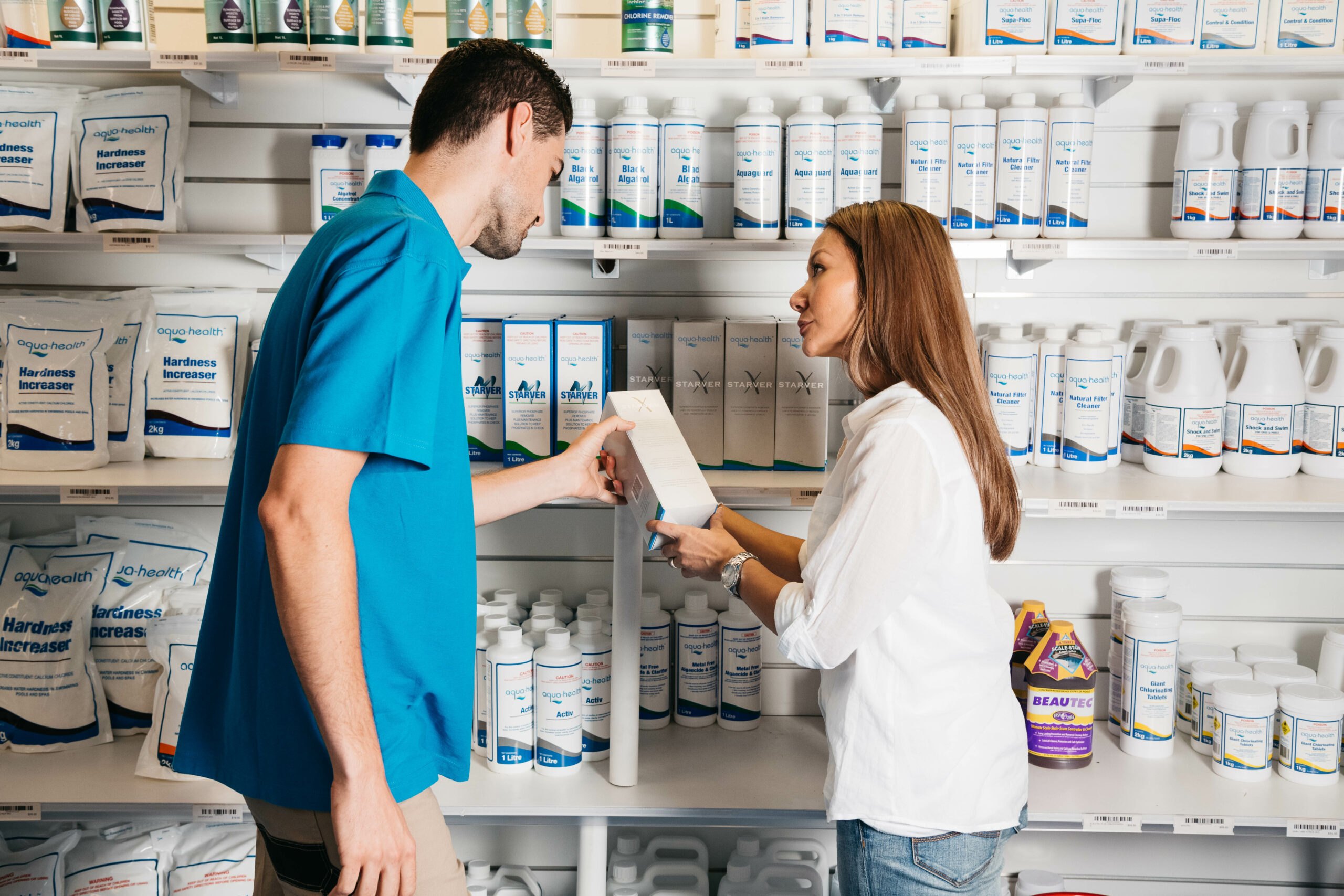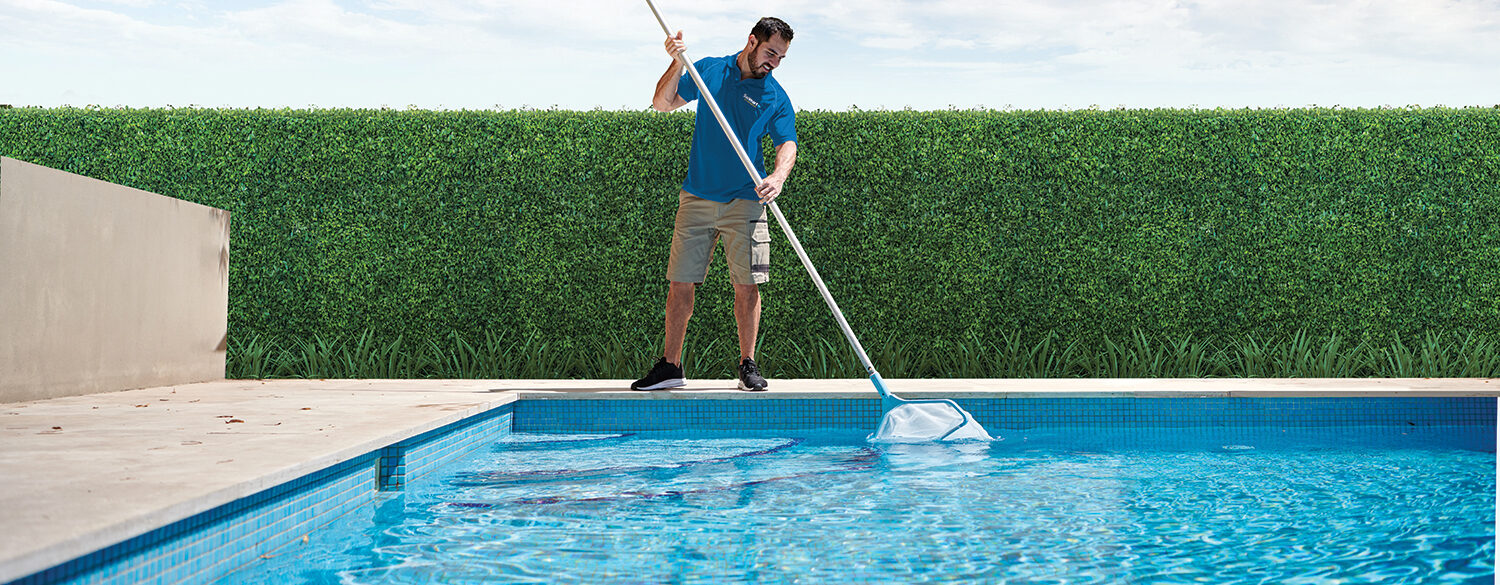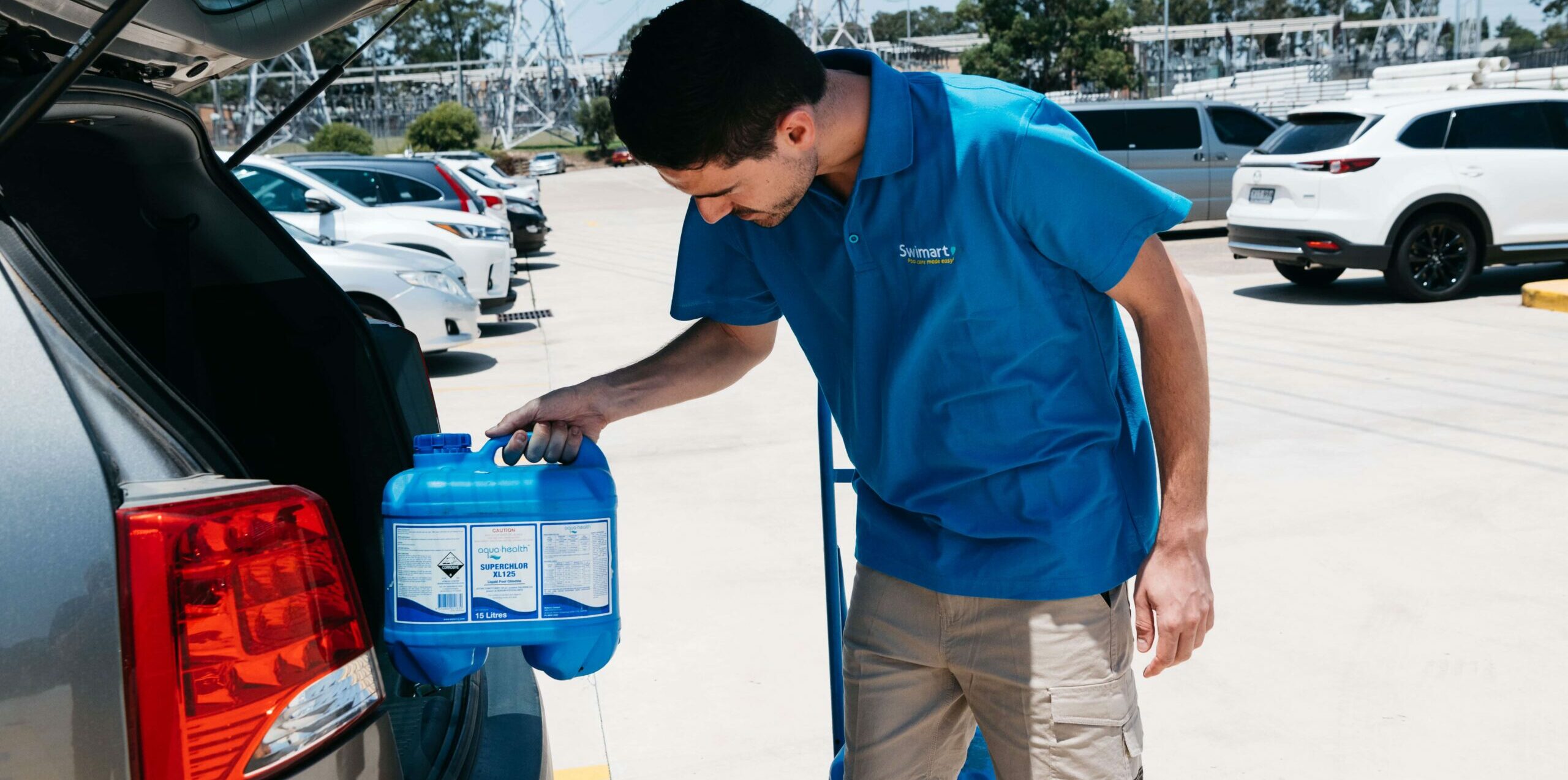| Gary Beecroft from Waterco says it’s important to adhere to a regular maintenance program of testing the pH and alkalinity, balancing and sanitising the water, cleaning the filter cartridge, checking phosphate and algae levels and cleaning and degreasing the spa’s pipes.
Chlorine-free alternative
A significant number of Australians suffer from skin allergies and conditions such as asthma, and Swimart has also noticed an increase in demand for its chlorine-free range of treatments – the Poppits Peroxsil range from Waterco.
Poppits offers a viable, healthy alternative to traditional chlorine and bromine chemical sanitising solutions and is approved by the Sensitive Choice® program of the National Asthma Council Australia and the Asthma Foundation New Zealand.
“The therapeutic benefits of spas are widely accepted, with users enjoying a sense of wellbeing, in addition to relief from chronic pain and physical discomfort,” says Gary.
“However, these benefits are lost on people with allergies, sensitive skin and respiratory conditions which are exacerbated by exposure to chlorinated water. This has created a perfect market for Waterco’s Pool & Spa Poppits range of chlorine-free products.”
The Poppits Peroxsil 395 chlorine free spa sanitiser range uses hydrogen peroxide (H²O²), a powerful yet versatile oxidant that is both safe and effective, in addition to a silver additive. Both of these are excellent anti-pathogenic substances.
“Hydrogen peroxide is one of the most powerful oxidisers known – stronger than chlorine, chlorine dioxide and potassium permanganate,” Gary adds. “H²O² is also formed by the action of sunlight on water – a natural purification system for our environment.”
Peroxsil 395 replaced the Poppits Sanosil range in May 2016. Pool and spa owners use it in exactly the same way as Sanosil, with similar dosage rates for start-up and maintenance.
Gary says there has been increasing demand, in particular, for the Poppits range of solutions for swim spas in residential homes.
“Our customers say they like the simplicity of the three step process, which includes testing, balancing and sanitising the water and they like how the sanitiser can also be dispensed through a Poppit Doser,” he says.
“And it’s relatively easy to convert the spa to a system which is completely free of chlorine/bromine, which has no odours, is easy to control and maintain and is sympathetic to the environment.”
Following are Poppits' tips for spa maintenance.
1. Balance
Keep the levels of pH, total alkalinity and calcium hardness in the water steady. The right level of all these tests will make the water more comfortable to swim in, and less likely to affect the skin and eyes of swimmers.
Therefore, the pH level needs to be as close as possible to our skin's natural pH, which sits around 7-7.8 on a pH scale of 0-14. Try to keep the pH from going too far above or below these levels as it will make the water acidic (0-6) or alkaline (8-14), making the water uncomfortable to swim in.
2. Sanitise
Sanitising products usually contain chlorine, such as Lithium and Bromine; however, there are some products available that do not, including Baquacil and Hydrogen Peroxide. (Delete ‘including Baquacil and’, insert ‘such as Hydrogen Peroxide’).
3. Oxidise
Oxidising is the best way to dissolve organic and inorganic material such as make-up, sweat or bugs, which can contaminate your spa. Fortunately, some sanitisers also oxidise, making your job easier.
If you only use your spa a few times a week with around three people in it, then you should only have to oxidise once every two or three weeks (unless your sanitiser does not oxidise, then you need to do it weekly).
However, if there is a higher level of organic or inorganic materials in the water than usual due to more frequent use or use by more people, you might want to oxidise it as soon as you can.
4. Clarify
Clarifying the water works to prevent or treat water that looks dull or cloudy. Dull water can be a result of heavy use, weather conditions, insufficient filtration, sanitisers not doing their job properly, or contamination by phosphates (which causes the sanitiser to be used up overnight).
If phosphates are the problem, it is more urgent to use a clarifier sooner rather than later, and be sure to use a phosphate starver to hit the problem hard.
Otherwise, regularly working a clarifier into your spa maintenance routine will help prevent the water from becoming dull or cloudy in the first place.
The ideal product for this is Poppits Pool & Spa Complete Maintenance.
5. Filter
Filtration of your spa should be ongoing every day. To maintain water quality and cleanliness, a spa filter should run a minimum of four hours a day, even when it is not being used.
Spas that are larger or experience higher use should filter the water for a longer time period. An efficient filter is essential to keep your spa in tiptop condition, and so it is very important to maintain your filter.
Clean the filter cartridges properly and regularly with chemical cleaners rather than just hosing them off. But take care with the chemicals; add them to the water rather than adding water to them.
Let the filters cartridges dry before returning them to the spa.
Swimart stocks an exclusive range of portable spas from Resort Spas which are available in a range of colours and finishes to suit your landscape, home and personal taste. |
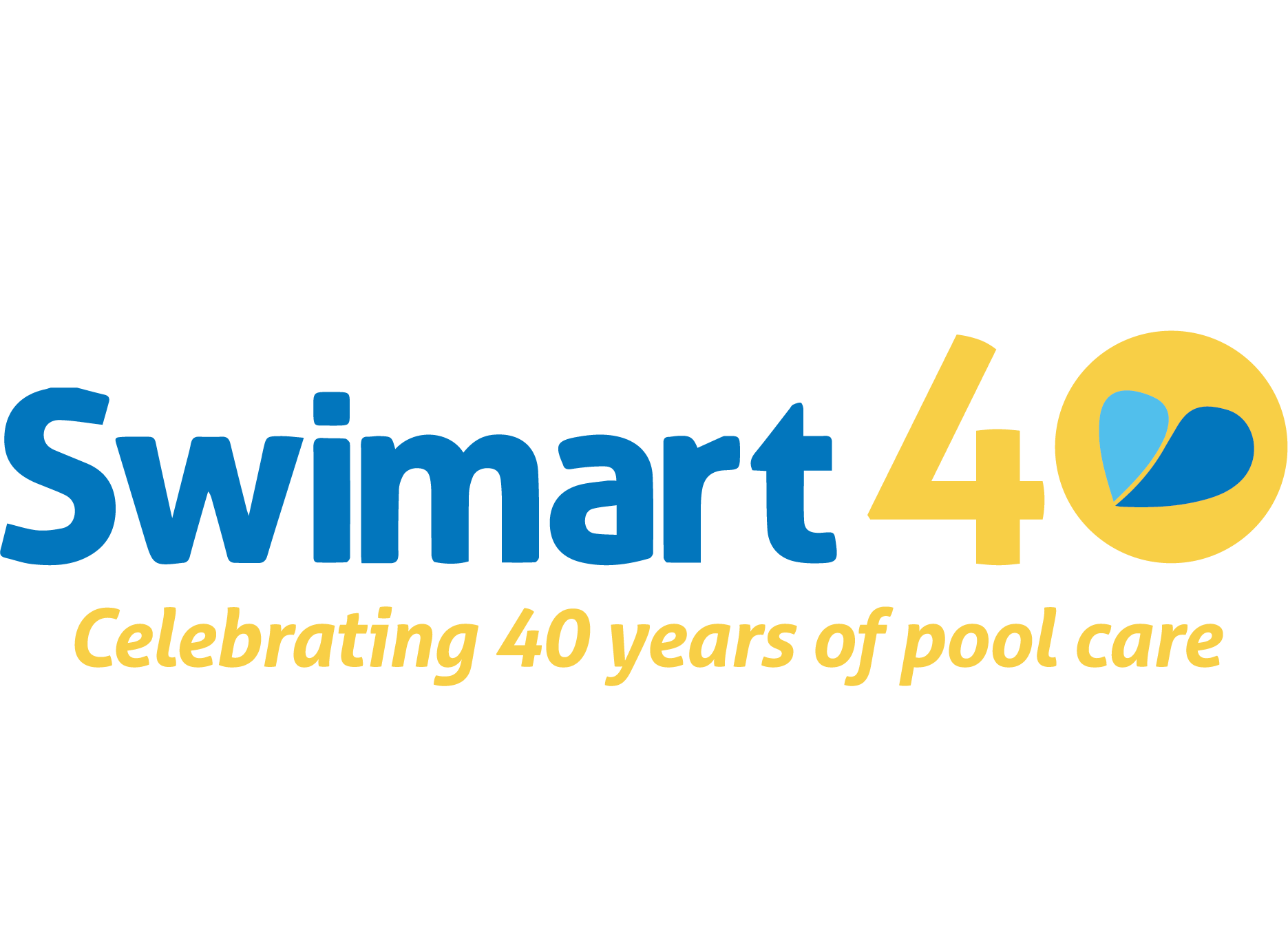
 AUS
AUS NZ
NZ 